17 Essential Driveway Maintenance Tips That Will Extend Its Life (Tip #6 is a Game-Changer!)
Maintaining your driveway is crucial for enhancing its durability and aesthetic charm. Over time, elements like rain, snow, heat, and even your vehicle can wear down your surface.
With the right set of driveway maintenance tips, you can keep your space looking fresh while also extending its lifespan significantly. From effective cleaning strategies to sealing techniques that work wonders, each tip is designed to tackle common issues and ensure your driveway remains a beautiful entrance to your home.
Whether you have a concrete, asphalt, or gravel driveway, there’s something in here for everyone to make their drive stand out and last longer.
Contents
- 1. Regular Cleaning
- 2. Seal the Deal
- 3. Repair Cracks Promptly
- 4. Avoid Heavy Loads
- 5. Keep Edges Trimmed
- 6. The Power of Resealing
- 7. Manage Drainage
- 8. Use the Right Materials
- 9. Temperature Considerations
- 10. Regular Inspections
- 11. Use Eco-Friendly Options
- 12. Clear Snow and Ice Promptly
- 13. Protect from Chemicals
- 14. Maintain Plant Life Nearby
- 15. Educate Family and Friends
- 16. Plan for Repairs
- 17. Celebrate Your Work
1. Regular Cleaning
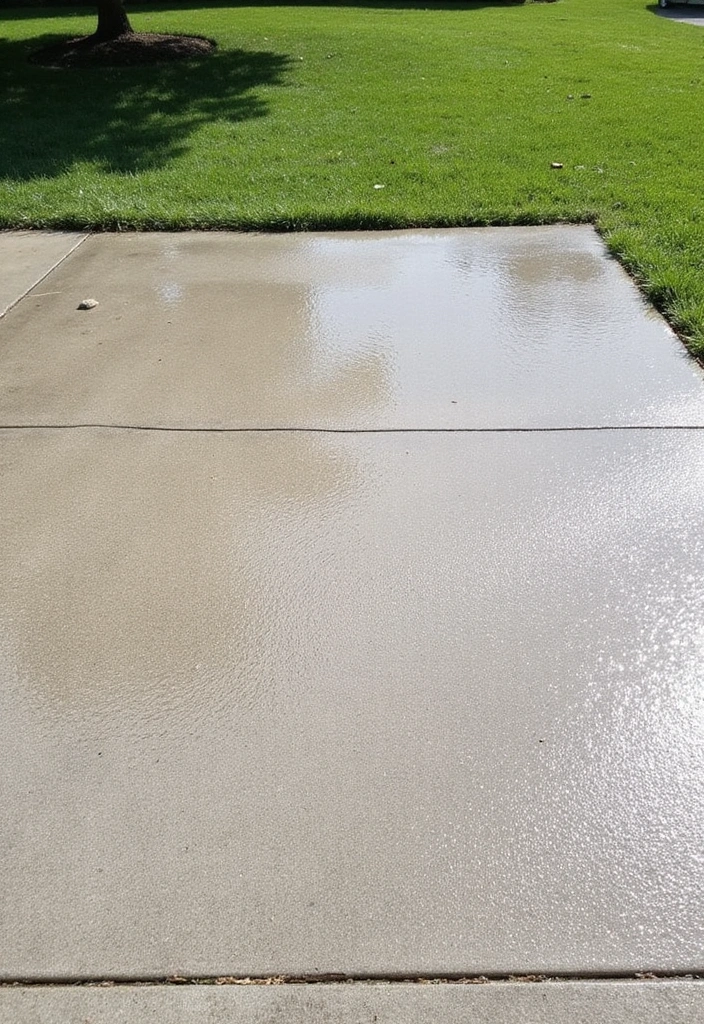
Keeping your driveway clean is the first step toward maintaining its integrity. Regular sweeping and hosing down the surface helps to remove dirt, leaves, and other debris that can cause staining or deterioration.
A simple routine of cleaning every few weeks keeps your driveway looking its best. For tougher stains, consider using a mild detergent mixed with water.
Here are some tips:
– Use a broom or blower to clear loose debris.
– For oil and grease stains, sprinkle baking soda on the area, let it sit, then scrub with a soft brush.
– Ensure proper drainage by clearing out any leaves or debris from nearby gutters and drains.
With a consistent cleaning routine, you’ll not only maintain the appearance but also prevent damage from built-up grime.
2. Seal the Deal
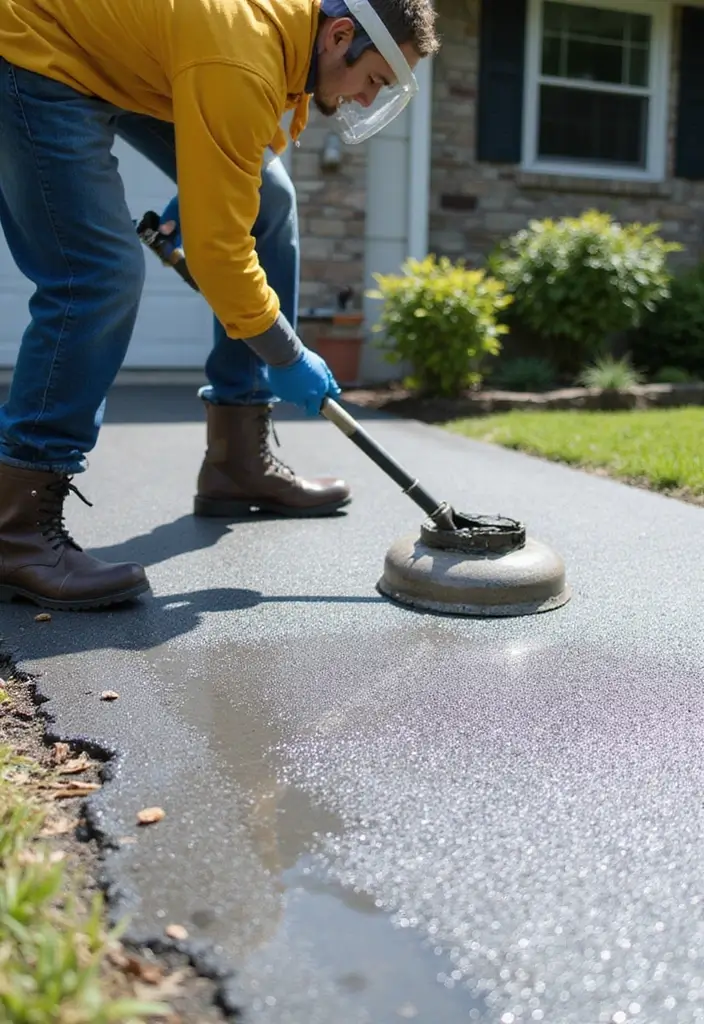
Sealing your driveway is a vital step that can significantly prolong its life. For asphalt driveways, this means applying a sealant every two to three years. This creates a protective barrier against moisture, UV rays, and chemicals that can cause cracking and fading.
Concrete driveways also benefit from sealing, which helps to prevent water absorption and freeze-thaw damage.
Consider these sealing tips:
– Choose the right sealant for your driveway type. Asphalt sealers vary from concrete sealers, so make sure to read labels.
– Clean the surface thoroughly before applying sealant to ensure it adheres correctly.
– Apply sealant during a period of dry weather for the best results.
By sealing your driveway, you’re investing in its longevity and appearance.
See also 20 Luxury Driveway Designs That Will Make You Feel Like Royalty Every Time You Arrive Home!
3. Repair Cracks Promptly
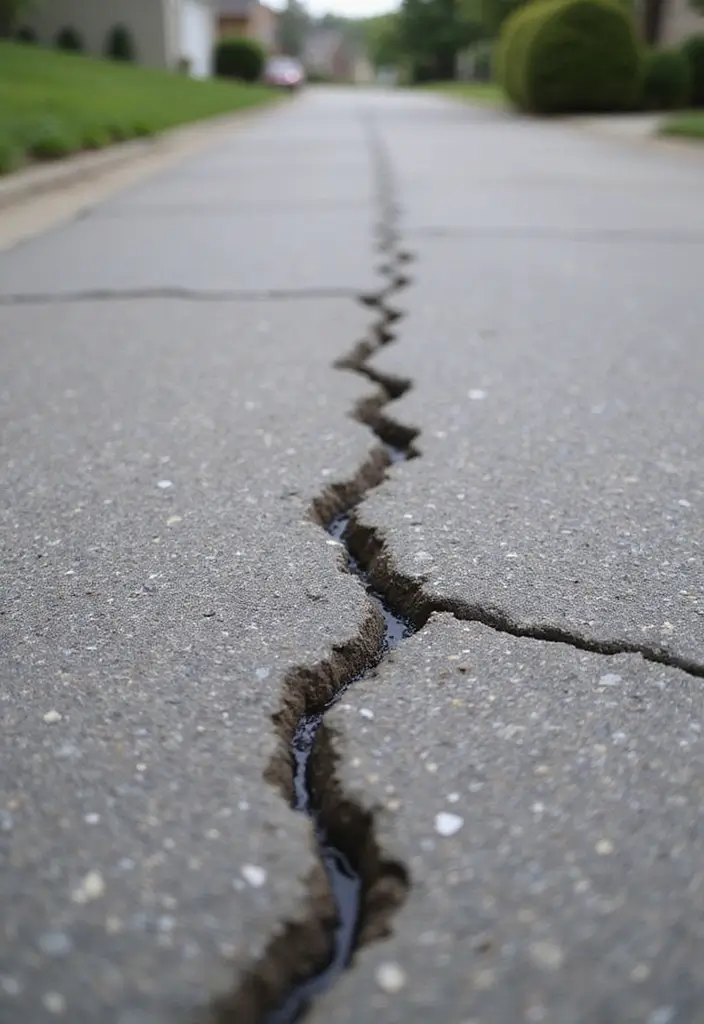
Cracks in your driveway can quickly turn into larger issues if not addressed promptly. Depending on the material, small cracks can be repaired with patching compounds or caulk. Not only does this maintain the aesthetic appeal, but it also prevents water from seeping in, which can lead to larger cracks or potholes.
Here’s how you can manage cracks:
– For asphalt driveways, use a hot rubberized crack filler to repair gaps.
– Concrete driveways require a specific concrete repair compound that fills in the gaps effectively.
– Always clean the area around the crack before applying any filler to ensure it adheres properly.
Regularly checking for and repairing cracks can save you from costly repairs down the line.
4. Avoid Heavy Loads

Being mindful of the weight you put on your driveway is essential in maintaining its structure. Heavy vehicles can cause cracks and depressions, especially in asphalt or gravel driveways.
To preserve your driveway’s integrity, consider these strategies:
– Avoid parking heavy vehicles, such as RVs or trailers, for long periods. If you must, use a designated parking area with a stronger surface.
– Distribute weight evenly when using machinery or other heavy items.
– If using heavy equipment for landscaping or repairs, consider using plywood sheets to distribute the weight.
This simple awareness can make a massive difference in how your driveway holds up over time.
5. Keep Edges Trimmed
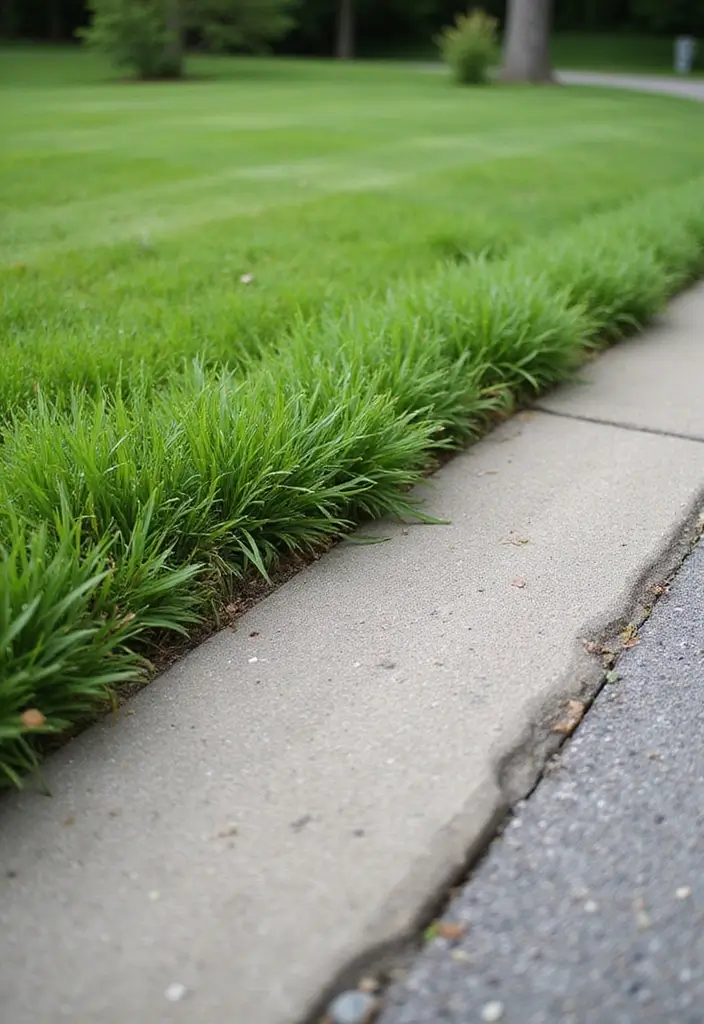
Overgrown grass and weeds at the edges of your driveway can lead to erosion and damage. Maintaining a clean edge not only improves appearance but also protects your driveway from encroaching plant roots.
To keep those edges sharp, try these tips:
– Use a string trimmer to regularly cut back any weeds or grass that may spill over.
– Edge your driveway with stones or bricks to create a clean line and prevent grass growth.
– Consider applying a weed barrier fabric beneath gravel driveways to deter unwanted plants.
With well-maintained edges, your driveway will look more polished and will last longer.
6. The Power of Resealing
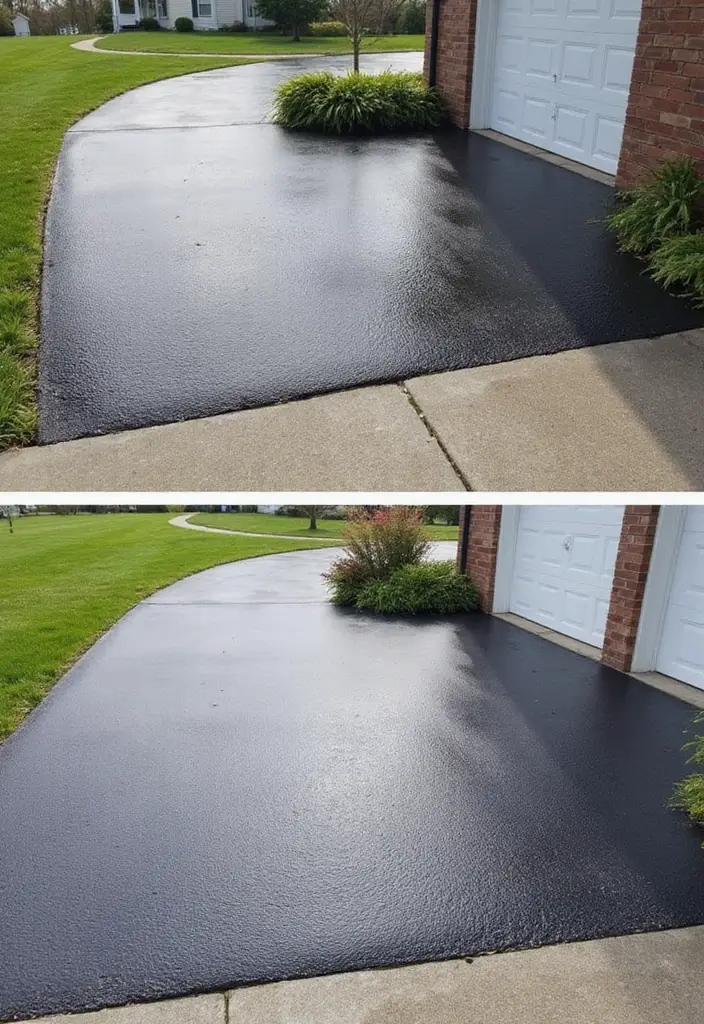
This is the game-changer you’ve been waiting for! Resealing your driveway, especially asphalt, rejuvenates its appearance and reinforces protective layers. This is particularly important if your driveway has seen better days.
When you reseal, you not only cover up minor imperfections but also create a waterproof barrier that keeps moisture from penetrating.
Here’s why you should consider it:
– It enhances your driveway’s color and overall look, making it look brand new.
– Resealing can fill tiny cracks and prolong the life of the surface.
– It’s an easy DIY project that can be done every few years.
By making resealing a regular part of your maintenance routine, you effectively invest in your driveway’s longevity.
7. Manage Drainage
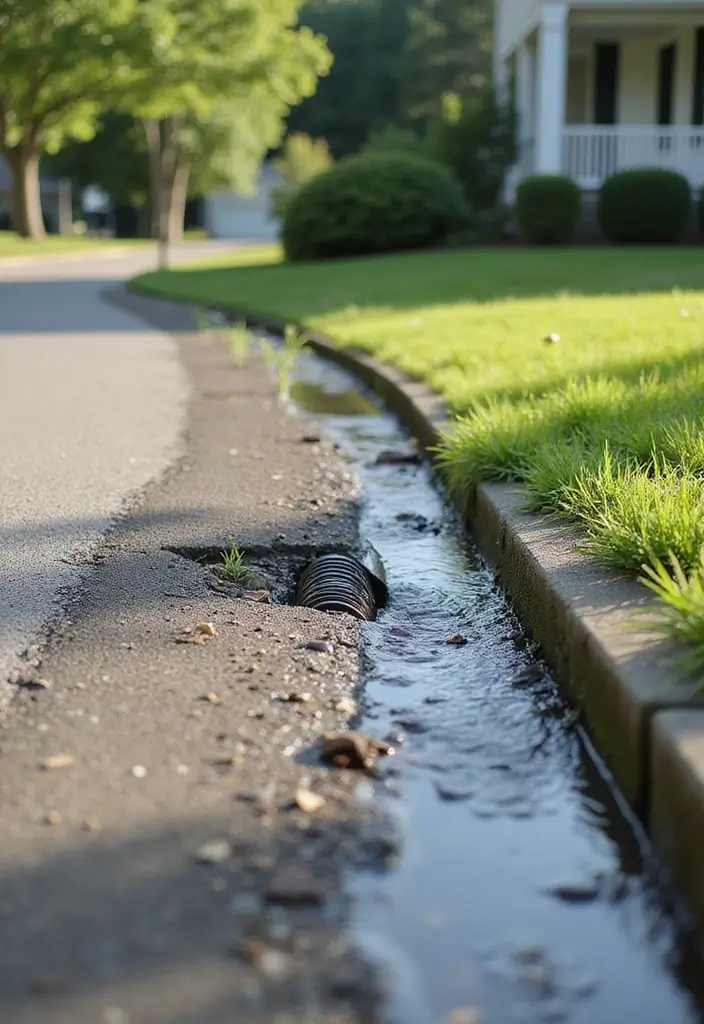
Proper drainage is essential for driveway longevity. Water pooling on your driveway can lead to cracks and shifting. Ensure your driveway has a slight slope to direct water away from your home and towards drainage areas.
Here are some useful drainage tips:
– Check for low spots where water tends to gather and fill them in with additional gravel or asphalt.
– Install drainage pipes or trenches if necessary to redirect water.
– Clean gutters and downspouts regularly to ensure they are directing water away from your driveway.
With proper drainage, you’ll minimize the risk of water damage and maintain your driveway’s durability.
Manage your driveway like a pro! A slight slope can save you from costly repairs by keeping water at bay. Remember, proper drainage is key to lasting driveway maintenance!
8. Use the Right Materials
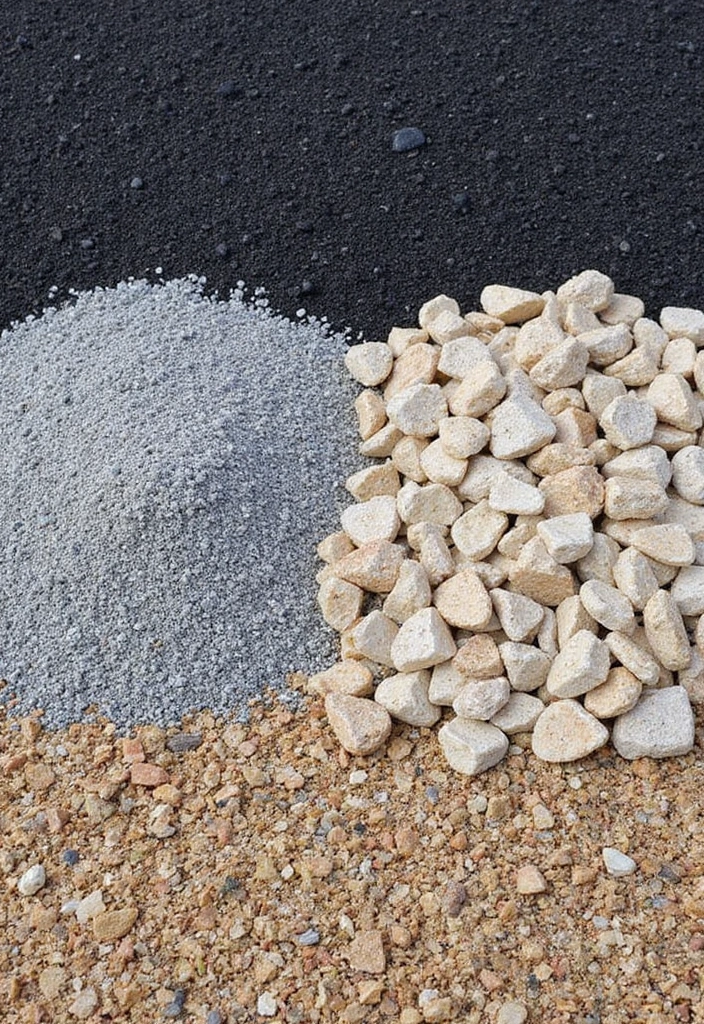
Choosing the right materials for repairs and maintenance can significantly impact your driveway’s lifespan. Different materials work better for various weather conditions and usage levels, so knowing what to use is key.
Here are some materials to consider:
– For asphalt repairs: Look for cold patch asphalt for quick fixes and hot mix for larger repairs.
– For concrete driveways: Use high-strength concrete mixes for patching, as they stand up to temperature fluctuations.
– For gravel driveways: Invest in high-quality gravel that compacts well and resists washout.
Using the correct materials tailored to your driveway type will enhance durability and minimize future repairs.
9. Temperature Considerations

Temperature fluctuations can affect the materials of your driveway. In areas where temperatures rise and fall dramatically, specific care is needed to prevent cracking and wear.
Keep these tips in mind:
– In hot weather, avoid parking heavy vehicles on your asphalt driveway, as the heat can soften it.
– In winter, use a snow shovel instead of a metal plow to avoid scraping the surface.
– Store snow and ice removal chemicals safely to avoid damage to concrete.
Being mindful of temperature impacts can help your driveway withstand harsh conditions and avoid costly repairs.
10. Regular Inspections
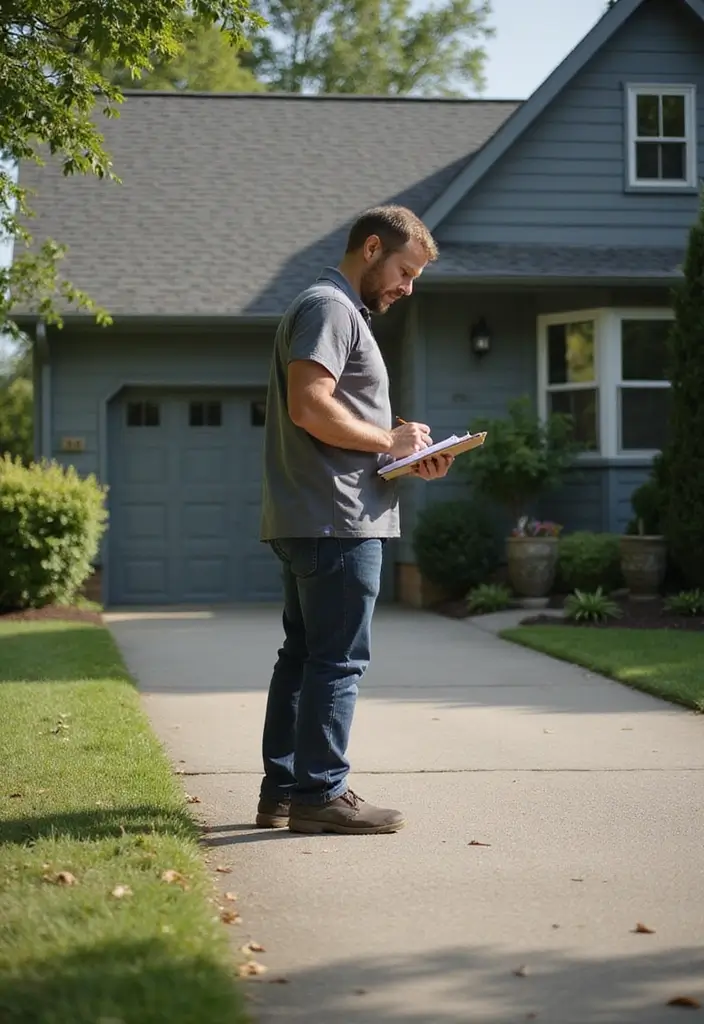
Taking time to conduct regular inspections of your driveway is essential. Look for signs of wear, such as cracks, shifting, or erosion. Early detection of any issues can save you time and money down the line.
Here’s what to check:
– Perform a visual inspection every season to catch any potential problems early.
– Inspect edges for signs of erosion or root encroachment.
– Keep an eye on water drainage to ensure it’s functioning properly.
Being proactive with inspections allows you to maintain your driveway effectively and preserve its longevity.
Regular inspections are your driveway’s best friend! Catching small issues early can save you time and money, keeping your driveway looking brand new for years to come.
11. Use Eco-Friendly Options

As environmental concerns rise, many homeowners are seeking eco-friendly driveway maintenance options. Choosing sustainable products not only helps the environment but can also enhance your driveway’s appearance.
Consider these eco-friendly tips:
– Use natural cleaners like vinegar or baking soda for stain removal instead of harsh chemicals.
– Opt for permeable paving materials that allow water to pass through, reducing runoff.
– Consider planting ground cover plants around edges to improve aesthetics and help with erosion control.
Adopting these eco-friendly approaches not only benefits you but also contributes to a healthier planet.
Embrace eco-friendly driveway maintenance! By using natural cleaners and permeable materials, you not only beautify your home but also protect the planet. Let’s pave the way for a greener future, one driveway at a time!
12. Clear Snow and Ice Promptly
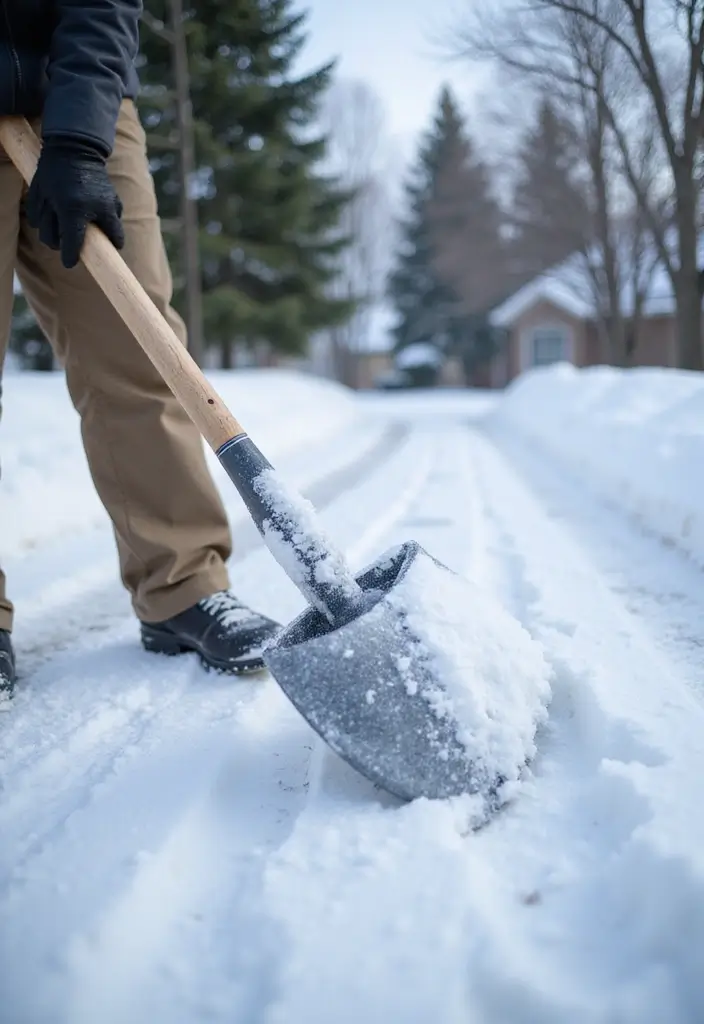
In winter, snow and ice can wreak havoc on your driveway if not managed properly. Regular snow removal not only keeps your driveway safe but also prevents long-term damage.
Here are some winter maintenance tips:
– Remove snow as soon as possible to prevent it from compacting and turning into ice.
– Use a snow blower or plastic shovel to avoid scratching the surface.
– Consider using sand or kitty litter for traction instead of salt, as it’s less damaging to concrete.
By being proactive in winter, you can protect your driveway from the harsh elements.
13. Protect from Chemicals
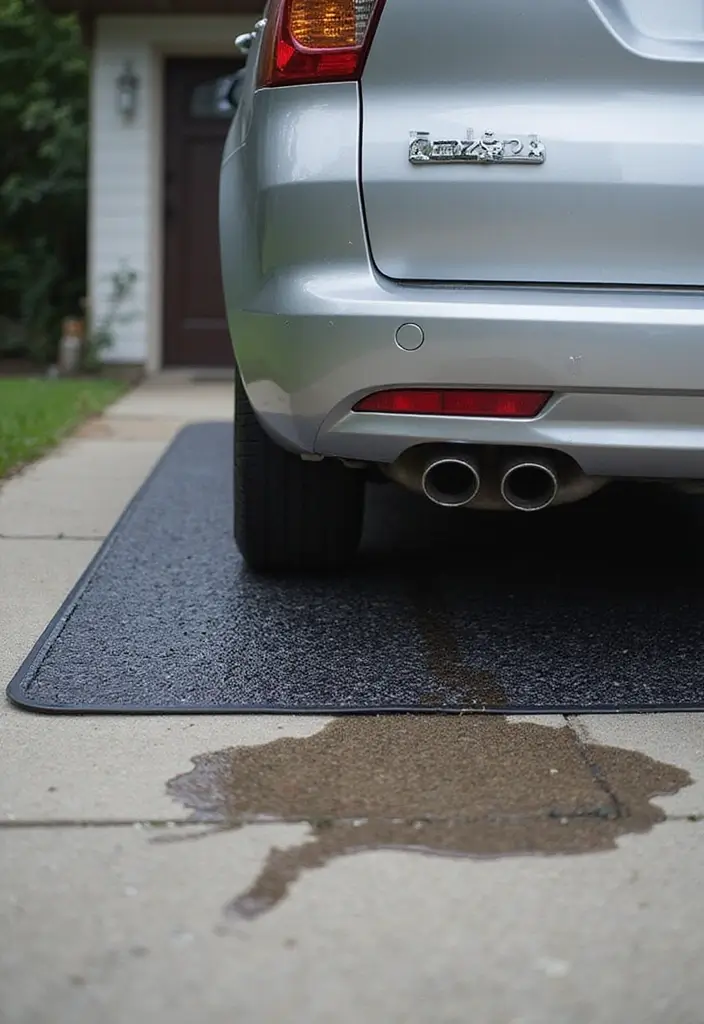
Chemicals like oil, gasoline, and antifreeze can damage your driveway’s surface. Being cautious with spills and knowing how to clean them up is vital for preserving your driveway.
To protect your driveway from chemicals, try these strategies:
– Place mats under vehicles to catch any leaks, preventing them from staining the surface.
– Clean spills immediately with soap and water; for tougher stains, a specialized cleaner may be necessary.
– Avoid using harsh chemicals for cleaning, as they can erode the driveway material over time.
With proper care, you can keep your driveway looking great and free from chemical damage.
14. Maintain Plant Life Nearby

Plants around your driveway can either be an asset or a liability. While they add beauty, their roots can cause significant damage. Maintaining nearby plant life is key to driveway upkeep.
Here’s how to manage it:
– Keep shrubs and trees trimmed back to prevent root invasion and overgrowth.
– Choose plants with shallow roots for landscaping near the driveway.
– Regularly check for roots encroaching on the surface and manage them as needed.
By maintaining plant life around your driveway, you ensure it remains intact and visually appealing.
A well-maintained driveway is like a clear path to your home. Trim those overgrown roots, and let your landscape be an asset, not a liability!
15. Educate Family and Friends

It’s important that everyone in your household understands how to care for the driveway. Educating family and friends can prevent accidents and damage.
Here are some ideas:
– Host a small ‘driveway care day’ to teach everyone how to clean and maintain it.
– Share tips on avoiding heavy loads and proper snow removal techniques.
– Make a rule about not allowing kids to ride bikes or skate on the driveway to prevent wear.
By fostering awareness, you create a community effort in maintaining your driveway.
16. Plan for Repairs
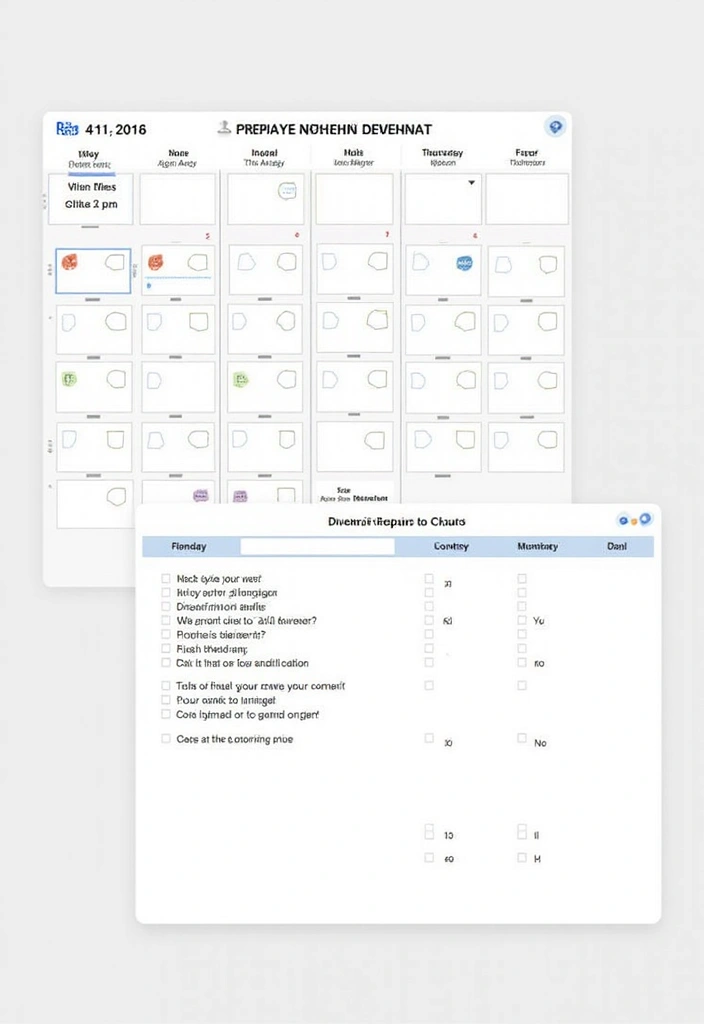
Being proactive about driveway repairs is key to avoiding larger issues. Planning repairs can help you budget and schedule effectively.
Here’s how to plan for driveway repairs:
– Keep a log of any issues and when they occur to track patterns.
– Create a budget for annual inspections and maintenance tasks.
– Schedule larger repairs during off-peak seasons when your driveway is less likely to be in use.
With a solid repair plan in place, you can keep your driveway in top shape and extend its life.
17. Celebrate Your Work

Finally, don’t forget to celebrate the effort you put into driveway maintenance! Keeping your driveway in great shape is a labor of love that enhances your home’s curb appeal.
Take some time to appreciate your hard work and the difference it makes:
– Take photos of your driveway after maintenance to see your progress.
– Share your successes with friends and neighbors to inspire them.
– Consider enhancing the area with flowers or decoration to truly make it shine.
By celebrating your achievements, you’ll feel motivated to keep up with your driveway maintenance.
Conclusion

By incorporating these driveway maintenance tips, you’ll not only extend the life of your driveway but also elevate its overall look. Regular care goes a long way in preventing costly repairs and ensuring that your entrance remains appealing.
Take the time to implement these strategies and watch your driveway thrive!
Frequently Asked Questions
How often should I clean my driveway to maintain its integrity?
Regular cleaning is essential for keeping your driveway in top shape! Aim to sweep and hose down your driveway at least once a month. This helps to remove dirt, leaves, and debris that can cause stains and deterioration over time. Remember, a clean driveway not only looks great but also extends its lifespan by preventing damage!
What materials should I use for driveway repairs?
Choosing the right materials for repairs is crucial to ensure longevity. For asphalt driveways, look for patching compounds specifically designed for asphalt. If you have a concrete driveway, use a quality concrete repair mix. Always check the product instructions and ensure it’s suitable for your specific driveway type to achieve the best results!
How can I tell if my driveway needs resealing?
Great question! If you notice that your driveway looks faded, has many small cracks, or feels rough to the touch, it’s likely time for resealing. Generally, asphalt driveways should be resealed every two to three years. This process rejuvenates its appearance and reinforces protective layers, making it a game-changer for longevity!
What are the best practices for winter driveway maintenance?
Winter can be tough on driveways, but with the right practices, you can keep it safe and sound! Clear snow and ice promptly to prevent long-term damage. Use a snow shovel or a snow blower, and avoid using salt, which can harm your driveway’s surface. Instead, consider eco-friendly de-icing options to protect your driveway during the colder months.
How can I educate my family about driveway maintenance?
Educating your family about driveway maintenance can be fun and collaborative! Host a small ‘driveway care’ workshop where you explain the importance of cleaning, avoiding heavy loads, and reporting any damages. Make it interactive by showing them how to spot cracks and clean effectively. This way, everyone can contribute to keeping your driveway in great shape!

